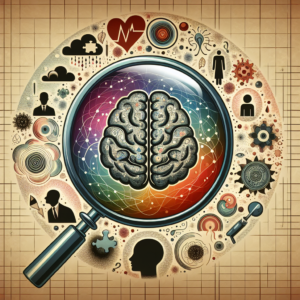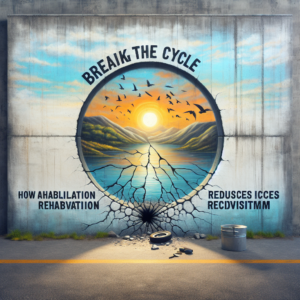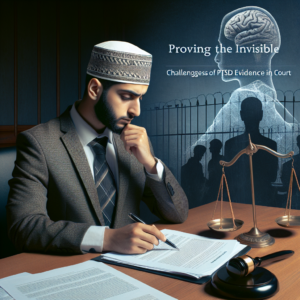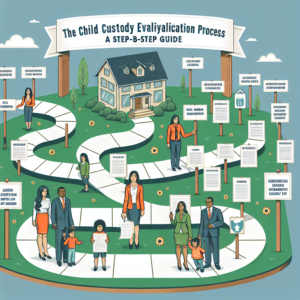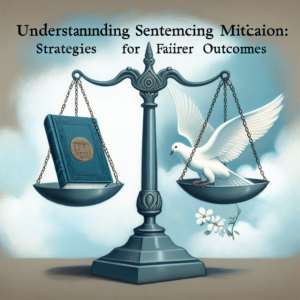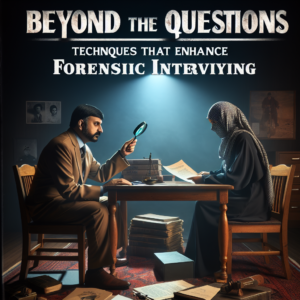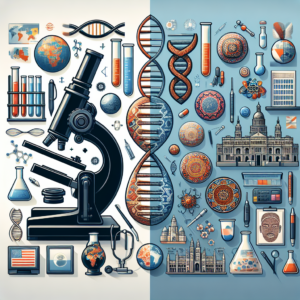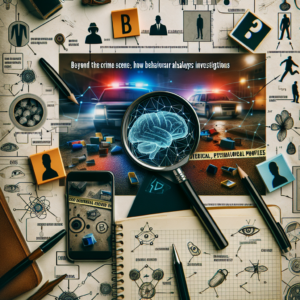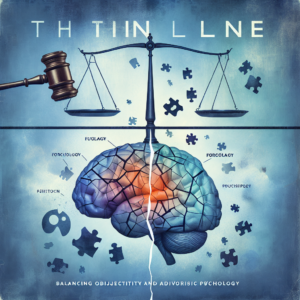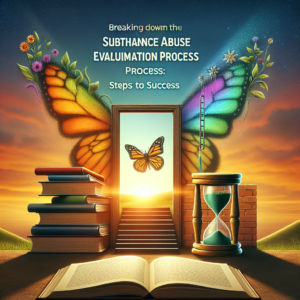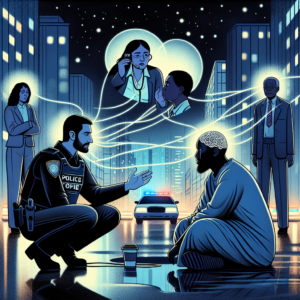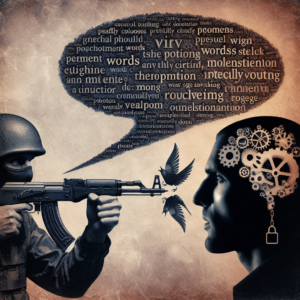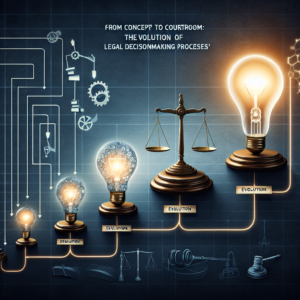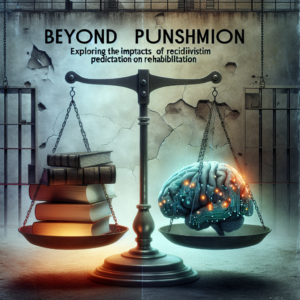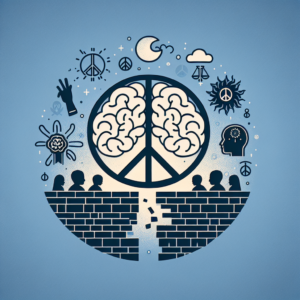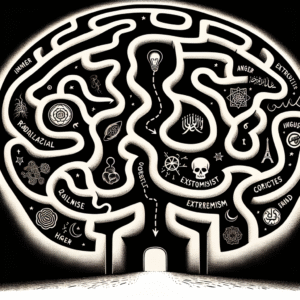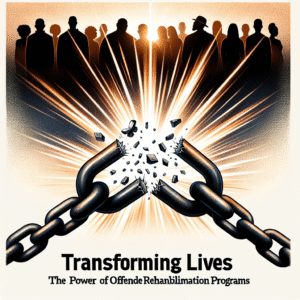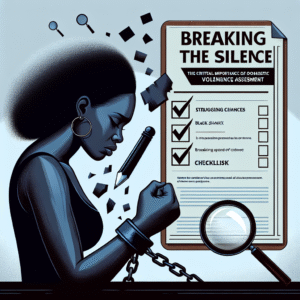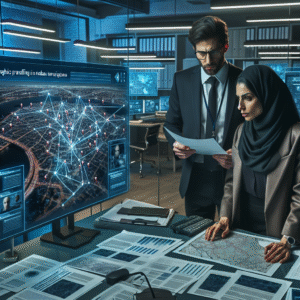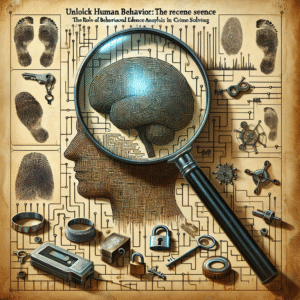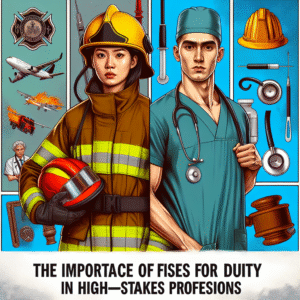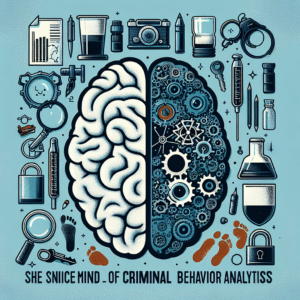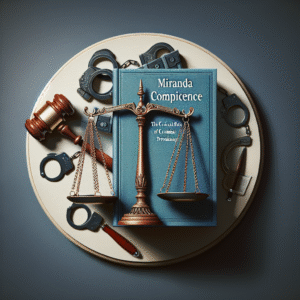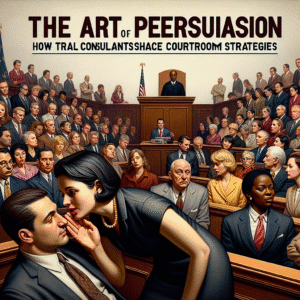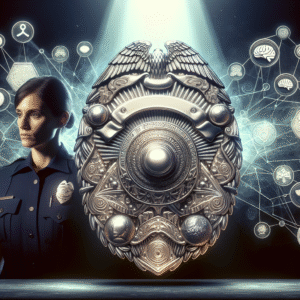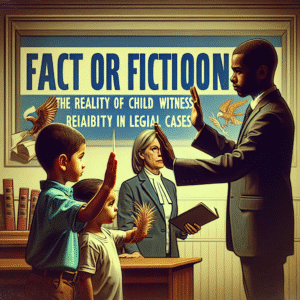Introduction In the complex world of criminal justice, few metrics are as crucial as recidivism rates. The term refers to the tendency of previously incarcerated individuals to relapse into criminal behavior, leading to re-arrest, reconviction, or reincarceration. According to the Bureau of Justice Statistics, approximately two-thirds of released prisoners are rearrested within three years, showcasing an urgent need for...
Forensic Psychology
forensic psychology
Introduction Imagine if every life lost to suicide carried with it a story, not just of despair but of the intricate threads of psyche that, when pieced together, reveal profound insights into mental health. Welcome to the realm of psychological autopsies—a fascinating yet often misunderstood tool that provides the framework for understanding the mind’s complexities and what drives individuals...
Our tutorial guides you through the essentials of psychological assessment. Gain practical insights to enhance your personal and professional development.
Explore the complex world of criminal behavior analysis with our comprehensive tutorial. Gain insights into the psychological and sociological factors that drive criminal actions.
Explore the fascinating field of investigative psychology and gain insights into the human psyche. Discover how to apply psychological principles to understand and analyze complex behaviors.
Understand the role of forensic assessments in legal proceedings. Our in-depth tutorial explains the evaluation process and benefits.
Introduction Imagine a world where former inmates are not only rehabilitated but are also empowered to thrive, breaking the cycles of crime and despair. Breaking the Cycle: How Rehabilitation Reduces Recidivism is not merely a theoretical concept; it embodies a transformative journey for countless individuals and communities. Recidivism, or the tendency of previously incarcerated individuals to reoffend, is a...
Introduction Imagine standing in a courtroom, a witness to the unfolding narratives of distress, trauma, and invisible wounds. For many, this experience can be eerily relatable. Post-Traumatic Stress Disorder (PTSD) doesn’t manifest in clear, physical symptoms, making proving the invisible a daunting challenge in legal environments. The psychological ramifications of trauma, while deeply felt by individuals, often remain hidden...
Introduction Imagine a world where the cycle of recidivism among sex offenders could be broken. Where rehabilitation is not merely a term thrown around in legal jargon but a genuine journey towards recovery, reintegration, and change. The discussion surrounding sex offender rehabilitation is not just academic; it touches on societal fears, public safety, and the hopeful prospect of transforming...
Introduction In an era where mental health awareness is rapidly gaining ground, the phrase "From Screening to Healing: The Importance of Accurate Trauma Assessments" resonates with increasing urgency. Trauma can leave indelible marks on both individuals and communities, manifesting in various psychological and physical symptoms. Yet, navigating the complex landscape of trauma recovery begins with one pivotal step: accurate...
Introduction Domestic violence remains a critical yet often overlooked issue within our communities. It’s often hard to identify—hidden beneath layers of fear, shame, and isolation. "Identifying the Unseen: Effective Strategies for Domestic Violence Assessment" addresses the nuanced nature of this pervasive problem. Understanding how to assess domestic violence effectively can be the first step in unraveling the complex emotions...
Introduction The death penalty has been a topic of heated debate for centuries, often seen as the ultimate form of justice. Yet, as we face a rapidly evolving society, the question remains: is capital punishment still relevant? "Death Penalty Dilemmas: Evaluating Its Role in Modern Justice Systems" dives deep into this controversial issue, dissecting the complexities surrounding its application,...
Introduction Navigating the world of child custody can be overwhelmingly complex and emotionally charged. It’s a path rife with uncertainties, often littered with legal terminology and daunting court proceedings. At the heart of many custody disputes lies a critical element: The Child Custody Evaluation Process: A Step-by-Step Guide. Understanding this process is not just beneficial; it can be essential...
Introduction The criminal justice system often casts a long shadow over individuals facing sentencing, each case marked by its complexities and nuances. For many, the outcome can feel predetermined, influenced by the legal machinery, societal biases, and prosecutorial discretion. However, there’s a beacon of hope in the form of Understanding Sentencing Mitigation: Strategies for Fairer Outcomes. This exploration not...
Introduction Imagine for a moment being in a dimly lit room, facing an investigator tasked with unraveling the threads of a complex case—the stakes are high, reputations are on the line, and the truth seems elusive. In such scenarios, traditional questioning methods often fall flat, leaving investigators frustrated and witnesses conflicted. Welcome to the world of forensic interviewing, an...
Introduction In an ever-evolving landscape of challenges facing education, one truth remains undeniable: the safety of our students and educators is paramount. With various incidents ranging from bullying to extreme violence making headlines, the urgency for effective preventative measures has never been more critical. This is where the concept of threat assessment comes into play. By prioritizing threat assessment...
Learn about the specialized skills and expertise required to become a successful forensic psychologist in the field.
Dive into the world of criminal profiling and understand the psychological methods used to profile suspects. An educational guide.
Introduction In an ever-changing society where crime remains a pressing issue, understanding the multifaceted implications of crime is more crucial than ever. While perpetrators often take center stage in discussions about crime, the people impacted—victims—are frequently overlooked. This is where the role of victimology in the criminal justice system shines a light on the often-ignored narratives of those...
Introduction Forensic science has often been depicted as a highly technical field, dominated by the nuances of DNA analysis, toxicology, and ballistics in sterile lab environments. However, an often-overlooked aspect is equally vital: cultural awareness. The role of understanding cultural contexts and sensitivities is essential for effective forensic practice. In an increasingly diverse society, the complexity of human behavior,...
Introduction Imagine a crime scene bustling with investigators, detectives, and forensic specialists. Amid the chaos, another team stands quietly, analyzing the behaviors, motives, and psychological profiles of potential suspects. This team operates beyond the crime scene, focusing not just on the tangible evidence but on understanding the driving forces behind the crime. Behavioral analysis isn’t just an ancillary aspect...
Introduction At the intersection of law, psychology, and ethics lies the practice of forensic psychology—a field that increasingly shapes the landscape of the criminal justice system. Within this intricate web of responsibilities, forensic psychologists often find themselves navigating a challenging terrain: The Thin Line: Balancing Objectivity and Advocacy in Forensic Psychology. As advocates for both justice and mental health,...
Introduction In the high-stakes world of litigation, winning a case is no longer just about having the best legal arguments or the most compelling evidence. Frequently, it’s the behind-the-scenes efforts of a dedicated team of professionals that ultimately makes the difference. This is where trial consultants come into play. But who are these unsung heroes of the legal system,...
Introduction Imagine standing at the crossroads of justice and mental health—a system grappling with high rates of recidivism driven by untreated mental illnesses. For many individuals, the cycle of incarceration often feels endless, exacerbated not only by their circumstances but also by the inadequacies of traditional legal systems. However, there is a beacon of hope: the emergence of mental...
Introduction: The Heart of Justice Imagine standing in a courtroom, the air heavy with anticipation. On one side, a defendant faces serious charges; on the other, a prosecution eager to prove guilt. Somewhere in between lies the jury—ordinary citizens entrusted with an extraordinary responsibility. But what truly makes a jury fair and impartial? In this exploration, we delve deep...
Introduction In the realm of mental health and recovery, understanding the intricate details of "Breaking Down the Substance Abuse Evaluation Process: Steps to Success" is essential for individuals seeking help, families trying to support loved ones, and professionals dedicated to aiding recovery efforts. This evaluation process serves as a guiding light, illuminating the path towards effective treatment and meaningful...
Introduction Imagine a tense scene unfolding: a hostage situation, an armed standoff, or a suicide crisis. In these critical moments, the stakes are higher than ever, and the pressures on law enforcement are immense. The effective handling of such events often hinges not only on tactical expertise but also on psychological insight. This is where police psychology steps into...
Introduction Imagine your childhood friend swears they remember a birthday party that never took place, complete with a clown and a giant cake. Or you might insist you were in a different city on a day your family insists you were all together. These moments can leave us questioning the very fabric of our memories. Welcome to the intriguing...
Introduction In the complex world of correctional facilities, understanding inmate behavior is not just an academic endeavor; it is essential for fostering rehabilitation, promoting safety, and effectively managing resources. The nuances of inmate behavior are often deeply rooted in psychological, social, and environmental factors. By diving into the principles of correctional psychology, we can unravel these complexities to enhance...
Introduction In the high-stakes world of hostage negotiation, words can be more powerful than any weapon. Imagine a tense standoff where lives hang in the balance; a skilled negotiator uses the psychological weight of language to diffuse a volatile situation. In this article, we delve into Words as Weapons: The Psychology of Hostage Negotiation, exploring how human emotion and...
Introduction In today’s fast-paced world, the legal landscape is not just about the black and white of statutes and precedents; it’s a complex interplay of human intuition, technology, and evolving societal norms. The journey from concept to courtroom is one that has undergone monumental changes, refining the legal decision-making processes into what they are today. This evolution is crucial...
Introduction In a world increasingly troubled by violence and extremism, understanding the mechanisms of radicalization has never been more crucial. The complexities of how individuals evolve from everyday citizens to active participants in violent ideologies demand a nuanced approach. Decoding Radicalization: Tools and Techniques for Accurate Assessment involves developing robust frameworks to identify, analyze, and potentially intervene in radicalization...
Introduction Imagine a world where the criminal justice system not only punishes but also rehabilitates offenders. The challenge, however, lies in effectively predicting recidivism—the likelihood that an individual will reoffend after serving time. In this article, we will delve into the critical theme of Beyond Punishment: Exploring the Impacts of Recidivism Prediction on Rehabilitation. This exploration is essential in...
Introduction In our increasingly interconnected world, the complexities of preventing terrorism are more critical than ever. Every day, we confront the realities of violence that stem from radical ideologies, yet these acts don’t arise in a vacuum. At the core of many terrorist motivations lies a profound psychological struggle—a reality that underscores the importance of understanding mental health as...
In a world that often feels divided and fraught with tension, understanding the roots of extremism has never been more crucial. While news headlines show us the aftermath, the psychological mechanisms that push individuals towards radicalization are often shrouded in mystery. Radicalization Unveiled: The Psychological Pathways to Extremism aims to explore this complex landscape, revealing the hidden pathways that...
Introduction Imagine a world where crime rates plummet, communities thrive, and former offenders reintegrate successfully into society. This vision is not far-fetched; it’s a reality that can be achieved through effective offender rehabilitation programs. As we delve into "Transforming Lives: The Power of Offender Rehabilitation Programs," we’ll explore the essential role these initiatives play in breaking the cycle of...
Introduction In an age where almost every aspect of our lives is intertwined with the internet, it is crucial to understand both its wonders and its hidden dangers. At the heart of these dangers lies the dark web—a grim digital underbelly teeming with illicit activities and cybercriminals. "The Dark Side of the Web: Analyzing the Behavior Patterns of Cybercriminals"...
Introduction In an era where criminal justice reform is more crucial than ever, the debate surrounding the treatment of sex offenders has gained significant traction. Traditionally, the focus has been on punishment—prisons as warehouses, leaving little room for rehabilitation. However, emerging evidence suggests that rehabilitation over punishment is not just a humane approach but an effective one. This article...
Introduction Every nine seconds, a woman is assaulted or beaten in the United States. Despite these staggering numbers, domestic violence remains a topic shrouded in silence and stigma. Breaking the Silence: The Critical Importance of Domestic Violence Assessment is more than just a campaign for awareness—it’s a necessary call to action. Understanding the depths of domestic violence and its...
Introduction In the ever-evolving landscape of modern investigations, crime-fighting has become as much about understanding human behavior as it is about collecting evidence. One powerful tool that has emerged at the intersection of psychology and geography is geographic profiling. This method harnesses data analysis to identify where a perpetrator is likely to live based on the locations of their...
Introduction Navigating the turbulent waters of a divorce or separation is challenging, especially when children are involved. The critical process of child custody evaluation often appears as an intimidating hurdle for many parents. Understanding how this evaluation works, what it entails, and how it can impact custody arrangements is not just beneficial; it’s essential. In this guide, we will...
Introduction In an era where crime-solving relies heavily on advanced technology and forensic science, Unlocking Human Behavior: The Role of Behavioral Evidence Analysis in Crime Solving emerges as a crucial yet often underappreciated aspect of criminal investigations. Behavior analysis offers unique insights that help law enforcement understand not only the ‘how’ but also the ‘why’ behind criminal acts. The...
Introduction In a world where truth and deception often collide, the ability to discern veracity from falsehood can dramatically alter the course of justice, relationships, and personal understanding. Enter the realm of forensic interviewing—a skill that is both an art and a science, designed not just to uncover the truth but to do so in a manner that is...
Introduction: Understanding the Urgency Imagine walking into your workplace and immediately feeling a wave of tension. It might be palpable in the silence, the body language of your colleagues, or the lack of enthusiasm during a team meeting. The underlying cause? Workplace violence. In recent years, incidents of violence at work have surged, and the consequences extend far beyond...
Introduction In recent decades, the study of victimology has gained significant traction, revealing the profound psychological and social implications of trauma. For many, trauma isn’t just a momentary experience; it’s a lifelong journey of recovery. Understanding Victimology: The Science Behind Trauma and Recovery sheds light on the complexities of trauma, the nuances of victimization, and illuminates pathways to healing...
Introduction In an ever-evolving world where high-stakes professions, such as law enforcement, aviation, and healthcare, play crucial roles in public safety and efficiency, the importance of fitness for duty assessments cannot be overstated. These evaluations serve as a critical safeguard, ensuring that personnel are physically, mentally, and emotionally capable of performing their duties to the highest standards. As professionals...
Introduction In an age where crime rates fluctuate and public safety is a major concern, understanding what drives criminal behavior has never been more essential. The field of criminal behavior analysis seeks to unravel the complexities of the criminal mind, offering insights that can help law enforcement agencies and society at large. By decoding the mind of a criminal,...
Introduction Imagine being arrested, taken to an unfamiliar place, and confronted with a barrage of questions while still reeling from the shock. How you respond during such a critical moment can dictate the course of your life. This is where the crucial role of Miranda competence in criminal proceedings makes all the difference. Understanding and upholding Miranda rights are...
Introduction In the intricate dance of justice, where every word can sway a verdict, the art of persuasion takes center stage. But who guides the attorneys on this delicate tightrope? Enter trial consultants—often unseen, yet undeniably powerful figures who masterfully shape courtroom strategies. Their expertise in psychology, communication, and often a deep understanding of human behavior can mean the...
Introduction Behind closed doors, a world cloaked in secrecy unfolds—one that has become synonymous with coercive tactics, moral ambiguity, and a fierce debate over justice. The police interrogation room, a place where the quest for truth often collides with ethical dilemmas, serves as a microcosm for broader societal issues. In recent years, public scrutiny surrounding police tactics has surged,...
Introduction Imagine being a lawyer tasked with ensuring that justice is served—not just for your client, but for the very principles that uphold our legal system. The stakes are incredibly high, and your chances of success hinge on an often-overlooked factor: jury selection. In this comprehensive exploration of The Art of Jury Selection: Crafting the Perfect Panel for Justice,...
Introduction In the pursuit of justice, no element is more crucial than the accuracy of eyewitness identification. The science behind lineup procedures—a cornerstone of legal investigations—plays an essential role in determining whether the right individual is brought to justice or wrongfully convicted. Recent studies reveal shocking statistics about mistaken identifications, emphasizing that the integrity of lineup procedures directly correlates...
Introduction In an era where societal expectations of law enforcement agents are at an all-time high, understanding the psychological burdens faced by these individuals has never been more crucial. The phrase "Behind the Badge" often evokes images of bravery, authority, and heroism. However, it’s essential to shine a light on the hidden struggles that come with the badge. Behind...
Introduction Imagine a scenario where you and your friends reminisce about a memorable vacation. Over time, your collective recollection starts to shift, blending together elements that never occurred in the same way. This phenomenon isn’t merely a humorous anecdote; it’s a powerful illustration of memory contamination. Welcome to "From Memories to Misinformation: Understanding Memory Contamination," an exploration of how...
Introduction Picture this: A dimly lit cellblock where despair lingers in the air, but beneath the concrete walls lies the possibility of transformation. Behind bars is not merely a phrase associated with punishment; it represents an opportunity for rehabilitation. Behind Bars: The Role of Correctional Psychology in Rehabilitation can mean the difference between recidivism and successful reintegration into society....
Introduction Imagine being in a courtroom, surrounded by the tension of a high-stakes trial. The air is thick with anticipation as a young child steps onto the witness stand. This moment encapsulates a critical yet complex element of legal proceedings: child witness reliability. As we dive into the multifaceted world of child testimony, the question looms large: Fact or...
Introduction Imagine standing at the edge of a vast, intricate maze—walls of statutes, regulations, and precedents rising on all sides, each twist and turn representing another decision point that can alter the course of legal outcomes. Welcome to the world of law, where navigating this complex labyrinth can mean the difference between victory and defeat. Today, we delve into...
Introduction Brain injuries can drastically alter lives, not just for victims but also for their families and communities. With the rising awareness of the consequences of such injuries, there’s a pressing need to understand the legal nuances surrounding brain injury litigation. If you find yourself navigating the complexities of this legal landscape, it’s essential to know not just the...
Introduction Imagine a future where the criminal justice system doesn’t just punish but rehabilitates. With recidivism rates soaring—where nearly two-thirds of released prisoners are rearrested within three years—it’s clear that the status quo is faltering. Breaking the Cycle: How Recidivism Prediction Models Can Transform Criminal Justice is not just a title; it’s a clarion call for change. In this...
Introduction Imagine a world where understanding the mind’s complexities could revolutionize how we approach criminal justice. Picture a courtroom where decisions are informed not just by testimony but by scientific evidence derived from our very brain. This is no longer just a sci-fi fantasy; this is the promising reality of "Decoding Criminal Intent: The Impact of Neuroimaging in Forensic...

